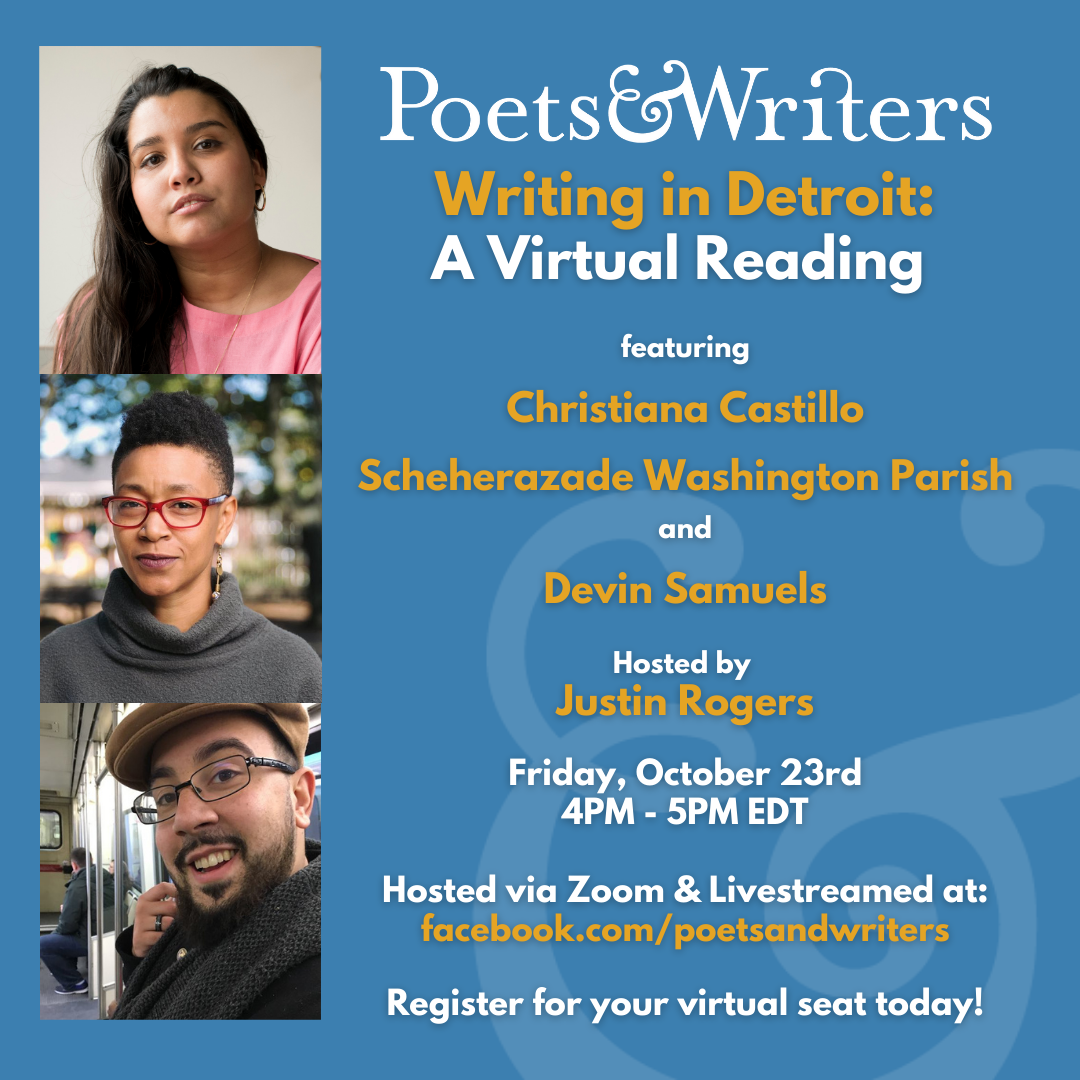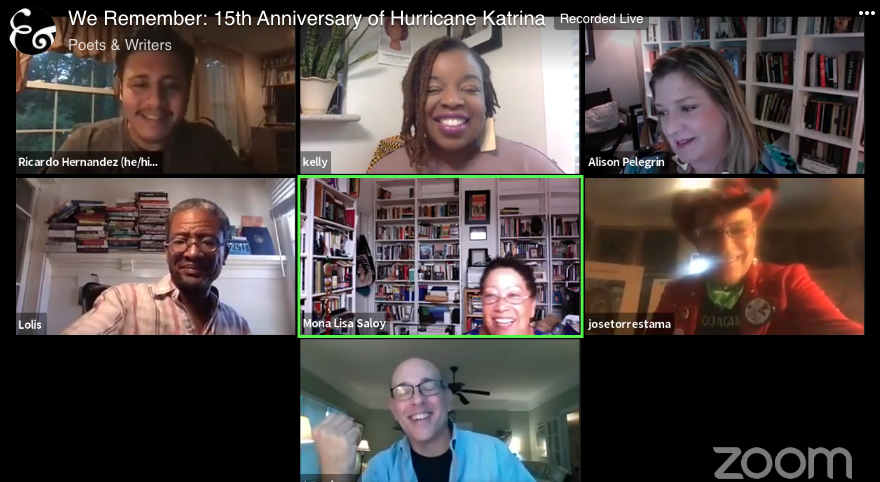On August 26, I curated a virtual reading highlighting New Orleans writers to remember, as I said at the event, all the people, all the cultural places, all the businesses, all the family artifacts, all the schools, all the neighborhoods, and the ways of being that were lost physically and dismantled systematically by Hurricane Katrina. It is hard to believe, but August 29 marked the day the levees broke in New Orleans fifteen years ago.
To commemorate the occasion, Dr. Mona Lisa Saloy, Tom Piazza, Alison Pelegrin, José Torres Tama, Lolis Elie, and Asia Rainey read from their work and shared their experiences. Fourteen-year-old New Orleans saxophonist Akeel Salah Muhammad Haroon treated us with a performance to close the evening.
Readings & Workshops program coordinator Ricardo Hernandez, who helped with tech support, said of the event: “The featured readers were all incredible. I was especially moved to hear Lolis Elie read from “The Whys” and I looked up the piece so I could quote it accurately: ‘Some of us came back because we didn’t believe that the insurance company that we’d dutifully paid for decades would cheat us in our hour of gravest need. (If Dante Alighieri had endured the inferno of our flood, he would have kindled a special fire for insurance companies!)’”
Curating this event was fun but challenging, especially with the added pressure of doing this virtually and praying for no tech hiccups. Luckily it all worked out and our virtual audience was pleased. My goal was to highlight all the ways Hurricane Katrina impacted the city’s writers. It was hard to curate because so much is at stake with a reading that represents the loss and trauma of an entire city. I was happy that each writer brought a different voice and perspective to the reading.
Thank you to all of those who joined us on Facebook for the live event. If you missed the reading, you can watch it here. There is also a wonderful piece written by Joshua Barajas for PBS NewsHour about our event.
Writing about Katrina can be painful, but mostly it is a celebration of what makes New Orleans so special. As Saloy says in the PBS NewsHour piece, “We’re not just authors. We are the carriers of our culture.”
Kelly Harris is the literary outreach coordinator for Poets & Writers in New Orleans. Contact her at NOLA@pw.org or on Twitter, @NOLApworg.





